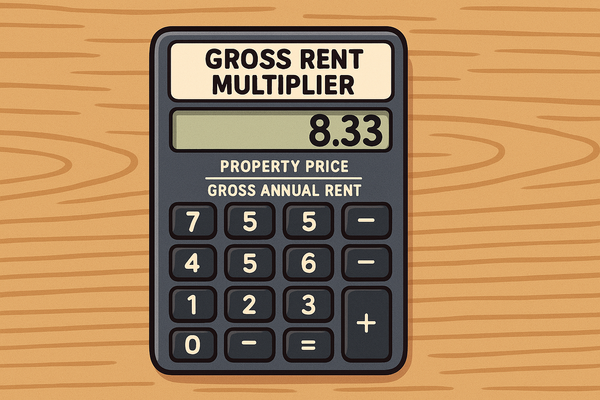Pennsylvania Squatters Rights Guide: Understanding Adverse Possession Laws
Required occupation period for adverse possession claims: 21 years in Pennsylvania, unless it's one-half acre or less that's been improved by a single family home and occupied by the claimant for the entire period of 10 years

From the serial squatter Jamison Bachman terrorizing roommates across the city of Philadelphia resulting in a tragic murder and suicide, to the one-night Airbnb booking that turned into a months-long nightmare with over $100,000 in property damage, Pennsylvania has seen some of the nation's most disturbing squatter cases.
These extreme situations highlight why every property owner in the Commonwealth needs to understand the complex legal framework of adverse possession, squatters rights, and the recent legislative changes designed to (hopefully) grant greater protection to rightful owners from unauthorized occupants.
Introduction to Squatters' Rights in Pennsylvania
- Definition of squatters vs. trespassers in Pennsylvania: In Pennsylvania law, squatters are individuals who occupy property without permission but may eventually claim legal ownership through adverse possession. Trespassers, by contrast, are simply unauthorized occupants with no intent to claim ownership rights.
- Basic overview of adverse possession in Pennsylvania: Pennsylvania's adverse possession laws allow unauthorized occupants to gain legal title to property they've occupied without permission if they meet specific legal requirements over a statutory period.
- Why property owners should understand these laws: Understanding Pennsylvania squatters rights is essential for protecting your property ownership and preventing potential loss of real estate through adverse possession claims.
- Historical purpose of adverse possession laws: Adverse possession laws originated to ensure productive use of land and to resolve disputes over boundary lines and property ownership when formal documentation was lacking.
Squatter Snippet: Real Case from Pennsylvania
In 2020, South Philadelphia property owner Joseph Foresta experienced a nightmare scenario when what should have been a one-night Airbnb rental transformed into a three-month squatting situation. The guest, Lawrence H. Jackson, not only refused to leave but allegedly changed the locks, rented out other units in the building to unauthorized occupants, and collected rent while paying nothing to Foresta.
When Foresta attempted to access his own property, he was reportedly attacked with a baseball bat by one of the occupants. By the time he regained control through court order in September 2020, his property had sustained over $100,000 in damages.
Key Timeline: Statutory Period in Pennsylvania
- Required occupation period for adverse possession claims: 21 years in Pennsylvania (standard)
- Continuous possession requirement: Occupation without significant gaps
- Comparison with neighboring states:
- Timeline exceptions:
- Recent legislative changes have reduced the period to 10 years for properties that are:
- One-half acre or less
- Improved by a single-family dwelling occupied by the claimant for the entire period
- Identified as a separate lot in a recorded conveyance, subdivision plan, or municipal map
- Recent legislative changes have reduced the period to 10 years for properties that are:
CHART: Adverse Possession Timeline Comparison
| State | Required Years | Special Conditions |
|---|---|---|
| Pennsylvania | 21 years (standard), 10 years (special cases) | 10-year period applies only to properties under one-half acre with a single-family dwelling |
| New York | 10 years | Requires color of title or payment of taxes |
| New Jersey | 20-30 years | 30 years for woodlands, 20 years for other properties |
| Delaware | 20 years | Requires payment of property taxes for at least 20 years |
| North Carolina | A21 years | Requires color of title or payment of taxes for 7 years |
Quick Guide for Property Owners
Pennsylvania's unique approach to squatters rights and adverse possession creates significant challenges for property owners. The state's relatively long 21-year standard statutory period might seem protective, but recent legislative changes have reduced this to just 10 years for certain residential properties.
This places Pennsylvania property owners at greater risk than many realize. Perhaps most concerning is that Pennsylvania law does not strictly require squatters to pay property taxes to establish adverse possession claims, unlike many neighboring states.
According to a 2023 survey by the Pennsylvania Association of Realtors, vacant properties in urban areas like Philadelphia and Pittsburgh are particularly vulnerable, with over 300 adverse possession cases filed annually in Philadelphia alone.
- Know your timeline: Squatters can claim rights after 21 years of continuous occupation (or just 10 years for qualifying properties)
- Documentation matters: Keep property records, tax receipts, and inspection logs
- Regular monitoring required: Vacant properties are most vulnerable
- Legal obligation: Self-help eviction methods are illegal in Pennsylvania
- Act quickly: The longer squatters remain, the stronger their potential claim
- Proper notices: Follow legal procedures when removing unauthorized occupants
Prevention: Protecting Your Property
Pennsylvania's courts have consistently upheld adverse possession claims when property owners fail to adequately monitor and protect their real estate investments (see City of Philadelphia v. Galdo).
Here are some of the steps you can take to prevent squatters from building potential adverse possession claims on your property in Pennsylvania:
- Regular inspections:
- Visit property at least quarterly
- Document each visit with photos/notes
- Effective security measures:
- Secure all entry points
- Consider alarm systems
- Install motion-activated lighting
- Clear signage:
- Post "No Trespassing" signs visibly
- Mark property boundaries clearly
- Property management options:
- Hire professional management for vacant properties
- Consider rental options for long-term vacancies
- Documentation practices:
- Keep tax payment records
- Maintain utility connections
- Take dated photographs regularly
CHART: Property Risk Assessment Matrix
| Property Type | Risk Level | Recommended Prevention | Estimated Cost |
|---|---|---|---|
| Vacant Land | High | Quarterly inspections, boundary markers, visible signage | $500-$1,000/year |
| Abandoned Building | Very High | Monthly inspections, security system, property management | $2,000-$5,000/year |
| Seasonal Property | Medium | Bi-monthly inspections, security system, neighbor check-ins | $1,000-$3,000/year |
| Investment Property | Low-Medium | Professional property management, tenant screening | $1,500-$4,000/year |
Removing Squatters: Step-by-Step Process
Pennsylvania's approach to squatter removal differs significantly from many other states. Under Pennsylvania law, particularly after the implementation of Act 88 of 2024 (effective September 15, 2024), there's now a clearer legal distinction between a "tenant" and a "squatter."
This amendment to the Landlord and Tenant Act of 1951 has streamlined the process for property owners to regain possession of their properties from unauthorized occupants.
Additionally, Senate Bill 1236, recently approved by the Pennsylvania Senate, seeks to establish even more precise legal definitions regarding squatters and empower property owners with more efficient tools to protect their investments.
A notable case that influenced this legislation was the Jamison Bachman case, where a "serial squatter" terrorized multiple homeowners in the Philadelphia area by using his knowledge of tenant rights laws to avoid eviction.
- Document the situation:
- Take photos/video of occupation
- Gather ownership documents
- Issue proper written notice to vacate
- File appropriate legal complaint:
- Wrongful detainer action in Pennsylvania
- Include all required documentation
- Attend court hearing
- If successful, obtain order of restitution/eviction
- Sheriff enforces removal, not property owner
- What NOT to do:
- Do not change locks yourself
- Do not shut off utilities
- Do not remove squatter's belongings
- Do not threaten or intimidate
- Do not use physical force
- Timeline expectations:
- Notice period: 10 days
- Court processing: 3-6 weeks
- Eviction enforcement: 11 days after judgment
CHART: Eviction Process Timeline
The removal of squatters in Pennsylvania follows specific timelines established by the state's civil procedure codes. According to Pennsylvania landlord-tenant law, property owners must provide squatters with at least 10 days' notice to vacate before filing a formal eviction complaint.
Court processing times vary by county, with Philadelphia County cases typically taking 4-6 weeks from filing to hearing due to backlog, while rural counties may process cases in as little as 2-3 weeks.
After a judgment is entered, squatters have 11 days to vacate before the sheriff may physically remove them. Recent data from the Administrative Office of Pennsylvania Courts shows that the average squatter removal process takes approximately 45-60 days from initial notice to actual eviction, though complex cases may take longer.
[Discovery of Squatter] → [Documentation: 1-2 days] → [Notice to Vacate: 10 days] →
[Court Filing: 1 day] → [Waiting for Hearing: 3-6 weeks] → [Court Hearing: 1 day] →
[If successful, Wait for Order: 2-3 days] → [Sheriff Enforcement: 11 days] → [Property Returned]
Total estimated timeline: 6-10 weeks
Legal Requirements for Adverse Possession
Pennsylvania courts apply the "OCEAN" criteria (Open, Continuous, Exclusive, Adverse, Notorious) when evaluating adverse possession claims. These requirements have been shaped by numerous Pennsylvania court decisions, including the landmark case Conneaut Lake Park v. Klingensmith (2010), which established that each element must be conclusively proven for a successful claim.
Under Pennsylvania law, the burden of proof falls heavily on the adverse possessor, who must demonstrate each element by "clear and convincing evidence" – a higher standard than the "preponderance of evidence" used in many civil matters.
This high evidentiary bar reflects Pennsylvania courts' traditional respect for documented property ownership while still acknowledging that adverse possession serves an important function in resolving longstanding property disputes.
- Hostile Claim
- Definition and examples in Pennsylvania case law
- Common misunderstandings
- Actual Possession
- Physical requirements
- Evidence courts look for
- Open and Notorious Possession
- Visibility standards
- Documentation and evidence
- Exclusive Possession
- Single-party occupation requirements
- Exceptions and interpretations
- Continuous Possession
- Time requirements specific to Pennsylvania
- Allowed exceptions or gaps
- Special circumstances (military service, incarceration)
CHART: Adverse Possession Requirements Matrix
| Requirement | Required in Pennsylvania? | Evidence Courts Accept | Common Pitfalls |
|---|---|---|---|
| Hostile Claim | Yes | Use without permission, actions inconsistent with owner's rights | Squatter had permission at any point during statutory period |
| Actual Possession | Yes | Physical occupation, maintenance, improvements | Occasional or sporadic use of property |
| Open & Notorious | Yes | Visible use, community recognition of possession | Concealed or hidden occupation |
| Exclusive | Yes | Sole control, excluding others including true owner | Sharing property with others, owner's occasional use |
| Continuous | Yes | Uninterrupted use for statutory period | Significant gaps in occupation, abandonment |
Frequently Asked Questions
- "Can I remove squatters myself?"
- No, self-help eviction is illegal in Pennsylvania
- Must follow legal eviction process
- "Do squatters have to pay property taxes?"
- Tax payment may strengthen adverse possession claim
- Not strictly required in Pennsylvania (unlike some states)
- "What's the difference between a squatter and a trespasser?"
- Trespassers: Short-term unauthorized presence
- Squatters: Ongoing occupation with potential adverse possession claim
- "Who should I contact first - police or sheriff?"
- For immediate safety concerns: Police
- For eviction enforcement: Sheriff
- "Can squatters claim abandoned property?"
- Yes, if all adverse possession requirements are met
- Abandonment may actually strengthen their claim
- "How quickly can I evict a squatter?"
- Typical timeline: 6-10 weeks
- Factors affecting timeline: court schedule, appeals, evidence quality
CHART: Decision Tree for Property Owners
Pennsylvania law enforcement agencies handle property disputes involving unauthorized occupants according to specific protocols.
Despite a law being passed in Philadelphia that makes squatting a crime, The Philadelphia Police Department, for instance, typically treats established squatting situations as civil matters requiring court intervention rather than criminal trespass. This approach stems from a history of Pennsylvania case law distinguishing between recent unauthorized entry (criminal trespass) and established occupation (civil matter).
Property owners should understand this distinction to know when police can provide immediate assistance versus when court proceedings are necessary.
Discovered Someone on Your Property
├── Emergency/Dangerous Situation? → Yes → Call Police
│ └── No ↓
├── Recent Entry (Less than 24 hours)? → Yes → Call Police (Trespasser)
│ └── No ↓
├── Evidence of Established Occupation? → Yes → Legal Eviction Process Required
│ └── No ↓
└── Uncertain Situation → Consult Attorney Before Taking Action
Recent Legislative Changes in Pennsylvania
Pennsylvania has implemented significant changes to its adverse possession and squatters rights laws in recent years, demonstrating a trend toward balancing property rights protection with efficient use of abandoned properties. Act 34 of 2018 (effective June 19, 2019) represented a major shift by reducing the adverse possession period from 21 years to 10 years specifically for smaller residential properties.
This change was championed by Representative Donna Scheuren of Montgomery County, who argued that the previous timeline was excessively burdensome for claimants who had maintained and improved properties for a decade.
More recently, Act 88 of 2024 (effective September 15, 2024) amended the Landlord and Tenant Act of 1951 to provide clearer guidance for addressing squatting incidents, making a distinct legal separation between a "tenant" and a "squatter." This clarification helps property owners avoid navigating full eviction proceedings against individuals who are not legitimate tenants.
- Recently Passed Laws:
- Act 34 of 2018: Passed June 19, 2019, this law reduced the adverse possession period from 21 years to 10 years for properties under half an acre with a single-family dwelling
- Impact on property owners: Created a faster pathway for adverse possession claims on smaller residential properties
- Effective date: June 19, 2019
- Pending Legislation:
- Senate Bill 1236: Currently approved by Pennsylvania Senate, awaits House vote
- Proposed changes: Establishes more precise legal definitions regarding squatters and streamlines removal processes
- Expected vote/implementation: Expected to be signed into law by late 2025
- Legislative Trends:
- Overview of how Pennsylvania laws are evolving
- Comparison to national trends in squatter legislation
State-Specific Considerations
- Color of Title in Pennsylvania:
- Definition: Irregular ownership document
- Impact on statutory period: May strengthen claim but doesn't reduce timeframe
- Documentation requirements
- Burden of proof requirements:
- Squatter must prove all elements of adverse possession
- Evidence standards in Pennsylvania courts
- Recent legal developments:
- Act 88 of 2024: Clarifies distinction between tenants and squatters
- Senate Bill 1236: Strengthens property owner protections
- How Pennsylvania differs from neighboring states:
- Statutory period differences
- Unique requirements
- Enforcement variations
CHART: Pennsylvania vs. Neighboring States Comparison
| Factor | Pennsylvania | New York | New Jersey | Delaware | North Carolina |
|---|---|---|---|---|---|
| Statutory Period | 21 years (10 for special cases) | 10 years | 20-30 years | 20 years | 21 years |
| Color of Title Impact | Minimal | Reduces to 10 years | Minimal | Minimal | Reduces to 7 years |
| Tax Payment Required | No | Yes | No | Yes | Yes |
| Special Conditions | 10-year period for properties under 0.5 acres | Must act in good faith | 30 years for woodland claims | Must pay taxes for 20 years | 7 years with color of title |
| Strictness Rating | 3.5 | 4 | 4.5 | 4 | 3 |
Advanced Legal Process
- Court proceedings in detail
- Evidence requirements
- Potential outcomes and appeals
- Monetary judgments and damages
- Impact on property title
- Special provisions for legally incompetent individuals
Real-World Examples
- The Case of Jamison Bachman: Known as Pennsylvania's "serial squatter," Bachman exploited tenant protection laws to terrorize roommates across the East Coast, particularly in Philadelphia. His understanding of legal loopholes allowed him to remain in properties despite not paying rent, culminating in violence and eventually murder before his suicide in 2017. This story was featured in the Netflix show, "Worst Roommate Ever."
- The Philadelphia Airbnb Nightmare: In 2020, Joseph Foresta's South Philadelphia property was taken over by a guest who refused to leave after a single-night booking. The squatter allegedly changed locks, rented units to others, and caused over $100,000 in damage during a three-month occupation.
- McCall v. Cecil County (2025): This case involved portions of two platted "paper streets" adjoining the plaintiff's property. The court found in the plaintiff's favor for most of the claimed area, demonstrating that unused planned roadways can be subject to adverse possession, but imposed limitations including rejecting the claim for a small portion and noting that successful adverse possession remains subject to existing easements.
Resources
- Current Pennsylvania Squatters Rights Laws:
- Pennsylvania General Assembly Official Website
- Last updated: September 15, 2024
- Recent/Pending Legislation:
- Pennsylvania General Assembly - Senate Bill 1236
- Bill status: Passed Senate, awaiting House vote
Legal Disclaimer
DISCLAIMER: The information provided in this guide is for general informational purposes only and should not be construed as legal advice on any subject matter. The content contained herein does not establish an attorney-client relationship.
This guide about Pennsylvania squatters' rights and adverse possession laws is intended to provide general information and should not be relied upon as legal advice. Laws and regulations regarding property rights, adverse possession, and eviction procedures vary by jurisdiction and may change over time. The information presented here may not reflect the most current legal developments or address your specific situation.
No reader should act or refrain from acting based on information in this guide without first seeking professional legal advice. Property owners dealing with squatters should consult with a qualified attorney licensed to practice in their jurisdiction for advice tailored to their particular circumstances.
The authors, publishers, and distributors of this guide expressly disclaim all liability in respect to actions taken or not taken based on any or all of the contents of this document. They shall not be responsible for any errors or omissions in this information or any consequences arising from its use.
This guide is provided "as is" without warranty of any kind, either express or implied, including but not limited to implied warranties of merchantability, fitness for a particular purpose, or non-infringement.
Copyright © 2025 LandlordDoc.com. All rights reserved.





